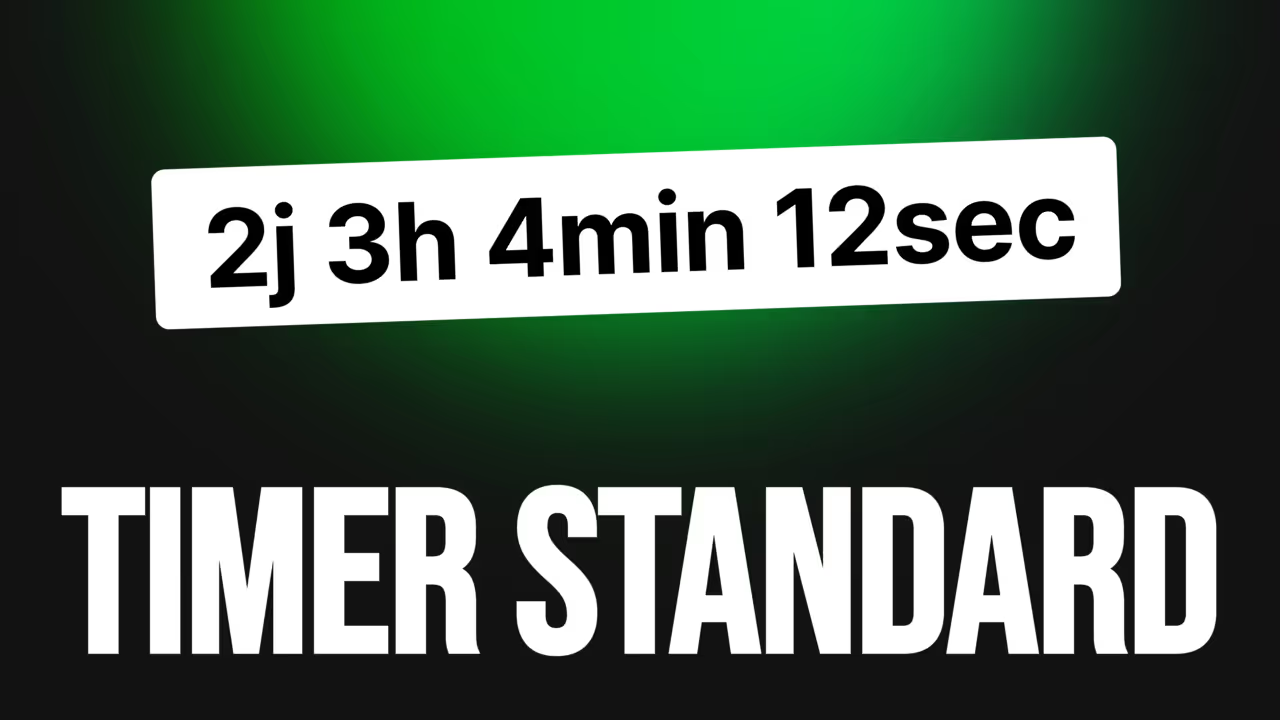
Compte à rebours classique
Copie-colle ce code entre les balises <body> de ta page
Le javascript ci-dessous te permet de faire fonctionner ton timer. Tu peux modifier la date comme bon te semble.
Variante 01 - Format "00:00:00:00"
Variante 02 - Format "00j 00h 00min 00sec"
Tutoriel Vidéo
Ajoute l'ID "Timer" à ton élément texte
Plus de scripts ?

Ajoute un slider interactif sur ton site Webflow avec un effet Avant/Après
Ajoute un slider interactif sur ton site Webflow avec un effet Avant/Après

Crées une animation stylée pour tes transitions de page pour une navigation plus fluide !
Crées une animation stylée pour tes transitions de page pour une navigation plus fluide !

Marre de voir tes performances Page Speed Insight réduites à néant à cause d'une seule vidéo dans ta page ? Voici un script pour te permettre d'ajouter une vidéo sans impacter les performances !
Marre de voir tes performances Page Speed Insight réduites à néant à cause d'une seule vidéo dans ta page ? Voici un script pour te permettre d'ajouter une vidéo sans impacter les performances !








